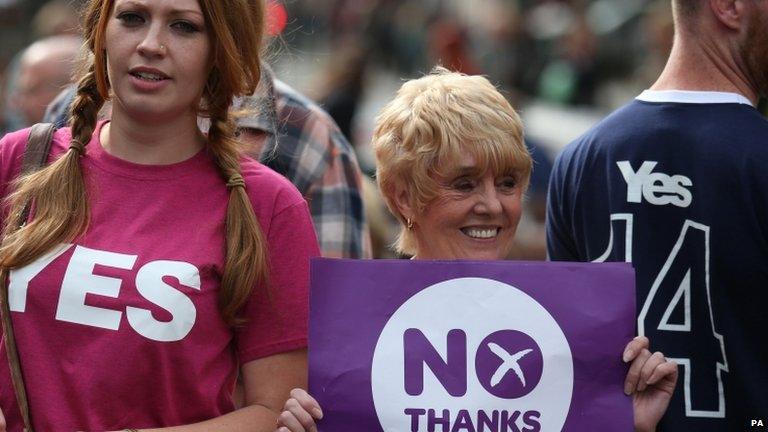Reward Wales after Scottish vote, says Rhodri Morgan
- Published
Rhodri Morgan says Wales should be "rewarded, not penalised" over powers and funding
Wales should be rewarded for not putting the UK "through the mincer" of a referendum on independence, former first minister Rhodri Morgan has said.
He was speaking after the people of Scotland voted by a 10% majority to remain part of the UK.
David Cameron promised Wales would be at the "centre" of discussions of the future of the union.
Mr Morgan backed his successor Carwyn Jones, who said Wales should be funded more fairly by the UK Treasury.
The former first minister told BBC Wales that Northern Ireland and Scotland were both better treated than Wales by the so-called Barnett formula, which he said should be reformed as part of a reshaping of the union.
"We have to think about how Wales should not be penalised for not having had a referendum on independence, not having North Sea Oil and gas, and not having the troubles and strife that Northern Ireland has had," Mr Morgan said.
"We didn't put the UK through the mincer, so we should be rewarded for that, not penalised for it," he added.
'New union'
Earlier, Mr Jones, the current first minister, said Wales would not play "second fiddle" when the future of devolution was discussed following the rejection of independence by Scottish voters.
First Minister Carwyn Jones said there needed to be a coherent settlement
Prime Minister David Cameron said Wales must have more say in its own affairs.
Welsh Secretary Stephen Crabb said he had been talking to Mr Cameron about the need for Wales to be "front and centre" of any talks and said he was "totally reassured" it would be.
However, speaking at a press conference, Mr Jones said he had yet to talk to Mr Cameron about how that would happen.
"He needs to get us all around the table," said Mr Jones.
"It's time for our constitution to be put on a coherent footing, no more tinkering at the edges year after year.
"The UK has suffered a serious injury and a sticking plaster will not do.
"Sudden declarations of English votes for English laws is an example of that sticking plaster. The old union is dead. It's time for a new union."
He added: "We need to start these talks now. The establishment nearly lost the union The people of these nations must now rebuild it".
The first minister was keen to speak about the estimated £300m shortfall in funding that Wales receives. It is currently given £1.5bn a year from Westminster.
"It's important that we're able to get the fair share of funding that we need in order to ensure that we have the NHS that we all want," he added.
"Wales cannot and will not play second fiddle."
While saying he was pleased with the Scotland referendum result, Mr Jones warned: "The prime minister almost sleepwalked to disaster last night.
"The promises from the three UK party leaders now have to be delivered."

Speech makes "powerful claim"
Prof Laura McAllister, professor of governance at Liverpool University, said Mr Jones made a very strong case in his speech for Wales to be treated equally in future devolution discussions.
"The first minister is making a powerful claim - that Wales must be treated as an equal when it comes to the consideration of constitutional realignment," she said.
"There is a certain language... the four of us, equal partners around the table. I think this is entirely appropriate and entirely strategic.
"There was always a danger Wales would be viewed as a junior partner.
"Carwyn Jones makes a very strong case and quite rightly. He is the leading Labour politician in the UK at this point in time."

Stephen Crabb told BBC Wales: "What's really important is that the aspirations of the people of Wales are satisfied and I can well see that aspiration and ambition increasing for Wales, and we're a government who wants to see that aspiration met.
Welsh Secretary Stephen Crabb said he was satisfied Wales would be at the centre of the debate to come
"I'm open minded about tax powers in Wales... Scotland makes the case for looking at the issue again."
At a press conference, Plaid Cymru leader Leanne Wood said the status quo was "not an option".
"The prime minister has reaffirmed to rebalancing power - action must now follow words," she said.
"We know Scotland will be offered new powers. It would be unthinkable and unacceptable for powers for Scotland but a second rate bill for Wales.
"We cannot continue to play catch up."
Kirsty Williams, Welsh Liberal Democrat leader, agreed that the current situation could not continue.
"I was always very, very clear that whatever the results, the status quo was not an option and there was an opportunity for profound constitutional change, and rebalancing here within the United Kingdom," she said.
"What's crucial for me is that Wales plays a central part in that, that we're not forgotten and that we can move forward to see the creation of a proper Welsh parliament and the long-cherished liberal goal of home rule for Wales."

ANALYSIS by BBC Wales parliamentary correspondent David Cornock
Welsh politicians in Westminster and Cardiff Bay are worried Wales will end up playing second fiddle and that the fall-out from the Scottish referendum becomes an Anglo-Scottish question.
A lot of work went into David Cameron's statement to make sure he talked about the "family of nations" across the UK but there wasn't an awful lot of detail.
There was talk about putting Wales at the heart of the debate.
But what we do know is that Scotland now has a cast-iron guarantee that its generous funding settlement will be protected. But that is a formula which the political consensus in Wales says short-changes Wales.
We're waiting for commitments from any UK party to deliver on that.
Mr Cameron has set a very tight timetable. He wants draft new laws for Scotland early next year as well as a timetable for giving English MPs more of a say over English issues.
But there is a general election coming up next May and that is the key date for all parties.
- Published19 September 2014
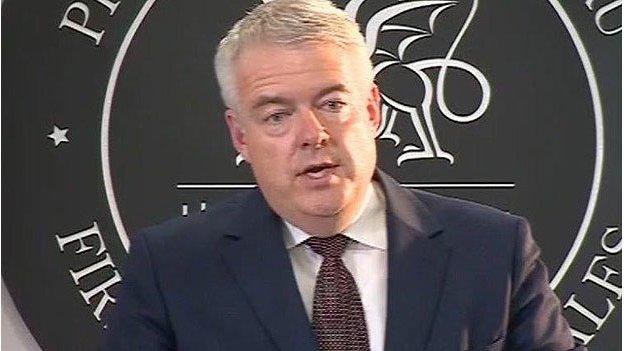
- Published19 September 2014
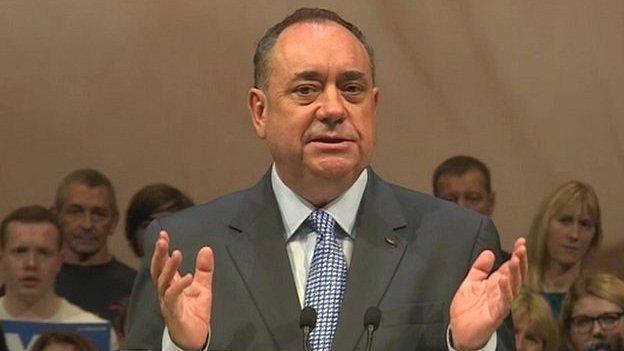
- Published19 September 2014
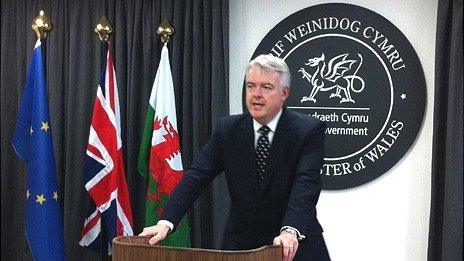
- Published19 September 2014
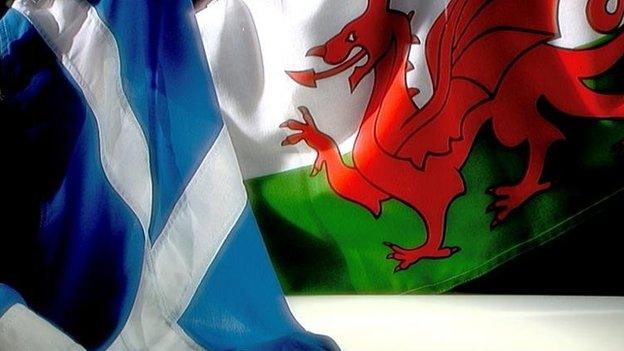
- Published19 September 2014
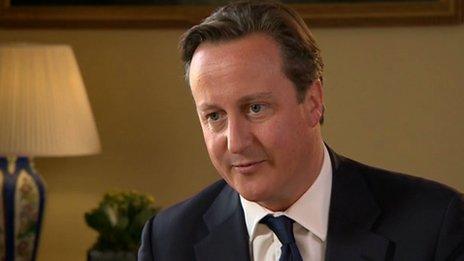
- Published11 September 2014
